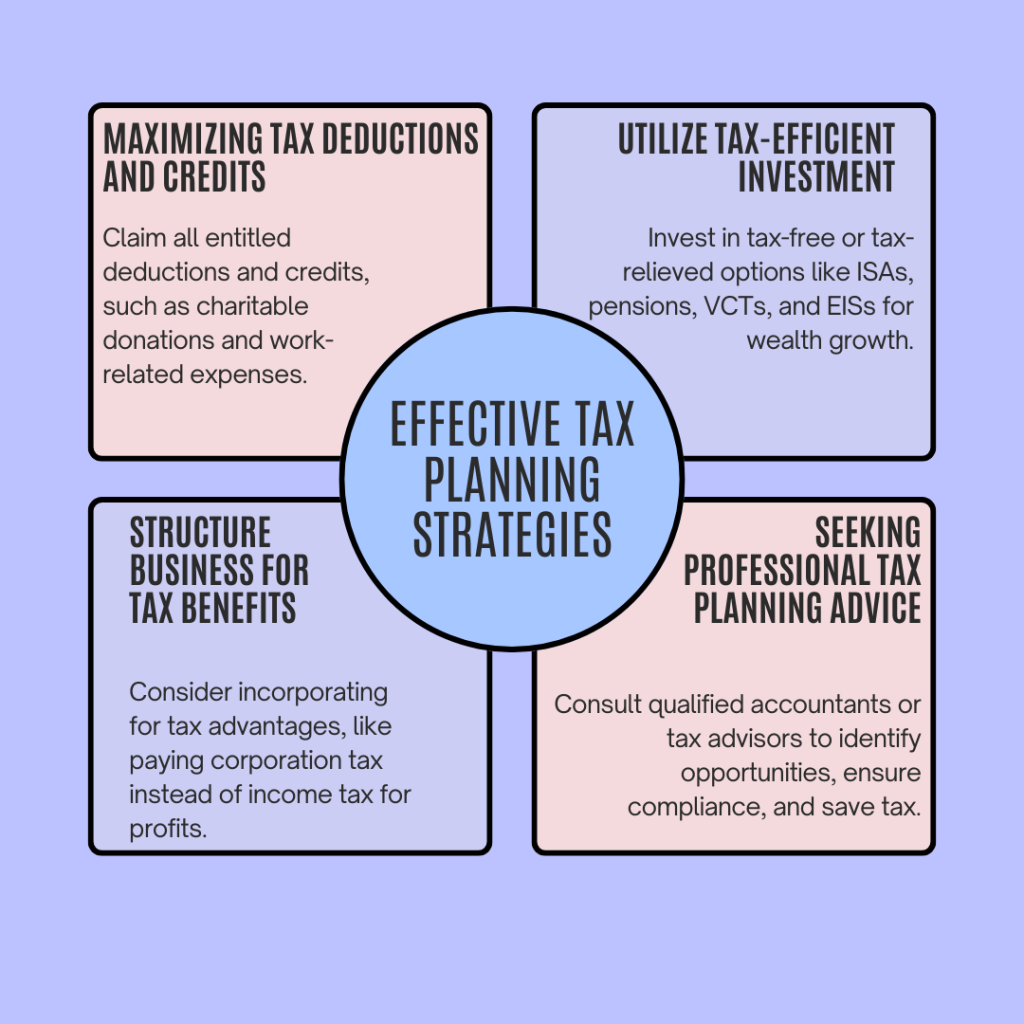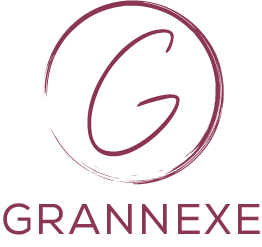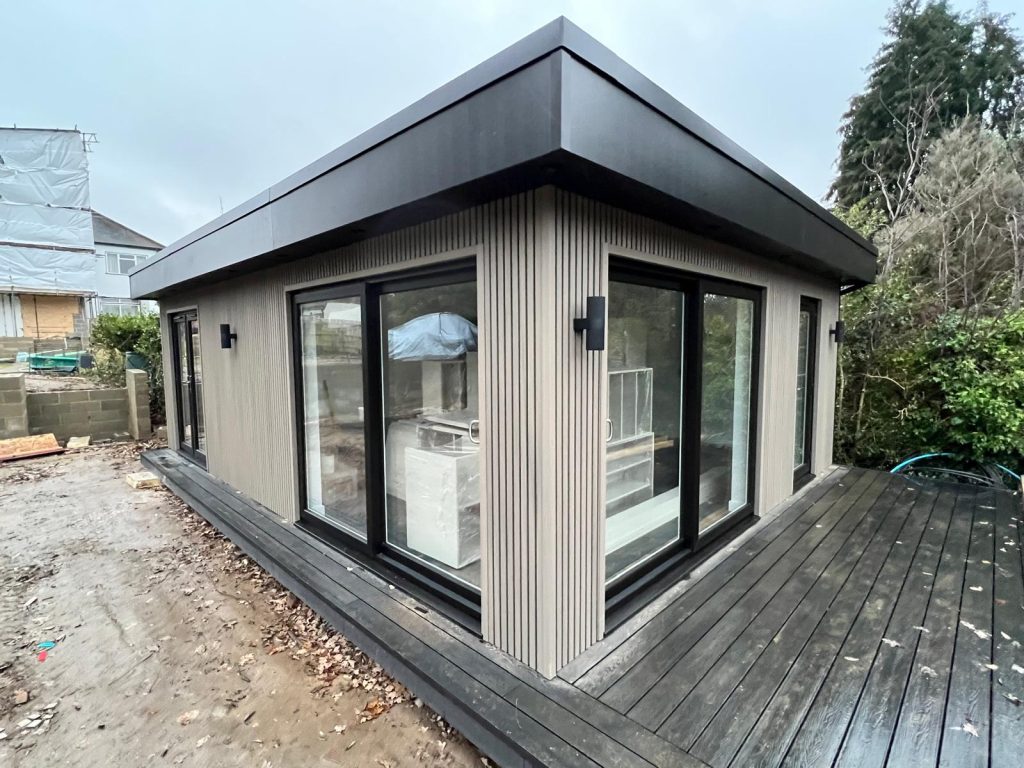Wondering if you can put a granny annexe through your business? This question raises important tax and legal considerations that could significantly impact your finances. Before making any decisions about funding your annexe construction through a company structure, you’ll need to understand exactly what’s possible and what consequences you might face.
What Are the Business Classification Options for a Granny Annexe?
When considering putting a granny annexe through your business, you must first understand how it might be classified for tax and legal purposes. This classification will directly impact how the investment is treated financially and what obligations you’ll face.
The main classification options include:
- Company asset – The annexe becomes property of the business, appearing on the balance sheet as a fixed asset
- Investment property – If the annexe generates rental income for the business
- Employee benefit – When provided as accommodation for you as a director or for employees
- Mixed-use property – Part business premises, part residential accommodation
Each classification carries different tax treatment. For instance, if classified as an employee benefit, the annexe could create a benefit-in-kind situation where the person living there (potentially your elderly parent) might face a tax liability based on the deemed value of the accommodation provided.
HMRC typically scrutinises arrangements where business assets are used for personal purposes. The key question they ask is whether the expenditure is ‘wholly and exclusively’ for business purposes. A granny annexe primarily used for housing family members would struggle to meet this test, potentially resulting in the entire cost being disallowed for tax purposes.
How Do Planning Regulations Affect Business Use of Annexes?

Source : Sleek
Planning regulations present another major hurdle when attempting to put a granny annexe through your business. Most granny annexes are approved under specific planning permissions that restrict their use.
The standard planning permission for a granny annexe typically includes:
- Permission for ‘ancillary’ or ‘incidental’ use to the main dwelling
- Restriction to residential use only
- Requirement to be occupied by family members or those directly connected to occupants of the main dwelling
- Prohibition of separate sale or letting apart from the main property
If you want to use the annexe for business purposes, you’ll likely need to apply for change of use planning permission. This process can be complicated, time-consuming, and with no guarantee of approval. Local authorities are often reluctant to approve business use in primarily residential areas due to concerns about increased traffic, noise, or change in neighbourhood character.
The planning use class of a building dictates what activities can legally take place there. Residential annexes fall under Class C3 (dwellinghouses), while business uses might require Class E (commercial, business and service). Changing between these use classes typically requires formal planning permission.
Will Running a Business From Your Annexe Trigger Tax Consequences?
Using a granny annexe for business purposes creates several potential tax implications that you must consider carefully before proceeding. These tax consequences extend beyond just income tax and could affect multiple aspects of your financial situation.
The main tax considerations include:
- Income tax: Any business profits generated from annexe use will be taxable either through self-assessment (for sole traders) or corporation tax (for limited companies)
- Capital Gains Tax (CGT): Using part of your property for business purposes may reduce or eliminate the Principal Private Residence Relief available when you sell
- VAT: If your business is VAT-registered, you may be able to reclaim VAT on construction costs, but this creates complex partial exemption calculations
- Benefit-in-kind: If your company provides accommodation to you or family members, this creates a taxable benefit
- Business rates: The annexe may become liable for business rates instead of council tax if used primarily for business
One particularly important consideration is the capital gains tax implication. If you use part of your property exclusively for business, that portion no longer qualifies for the CGT exemption that normally applies to your main residence. This could result in an unexpected tax bill when you eventually sell your property.
Can Your Company Purchase a Granny Annexe as a Business Asset?
While technically possible, purchasing a granny annexe through your company as a business asset comes with significant complications. The primary issue revolves around the ‘wholly and exclusively’ rule for business expenses. HMRC will closely examine whether the annexe genuinely serves a business purpose or if it’s primarily for personal benefit.
If your company purchases a granny annexe, you’ll need to consider:
- The annexe must appear on company accounts as a fixed asset
- Annual depreciation must be calculated and recorded
- The company becomes responsible for all maintenance and repair costs
- Any personal use creates a benefit-in-kind tax liability
- The arrangement must have clear commercial justification
From a practical standpoint, if your parents will live in the annexe, it’s extremely difficult to justify this as a genuine business expense. HMRC could view this arrangement as tax avoidance, potentially leading to investigations and penalties. Even if you claim part of the annexe is used for business purposes (like a home office), you’d still need to apportion costs appropriately, with only the business portion allowable for tax relief.
Additionally, company ownership complicates the property’s legal status. The annexe becomes a company asset rather than your personal property, which has implications for inheritance planning and future property sales. Should your business face financial difficulties, the annexe could be at risk from creditors.
What Insurance Changes Apply When Business-Funding an Annexe?
Insurance requirements change significantly when a granny annexe has business connections, and failing to get proper coverage could leave you financially exposed. Standard home insurance policies typically exclude business activities, meaning you’ll need specific adjustments to ensure complete protection.
Key insurance considerations include:
- Building insurance: Must be extended to cover the annexe structure and any business equipment
- Public liability insurance: Essential if clients or customers visit the annexe
- Employers’ liability insurance: Legally required if you employ staff in the annexe
- Business contents insurance: Covers equipment, stock, and other business assets
- Professional indemnity insurance: Protects against claims of negligence or inadequate work
The ownership structure also affects who is responsible for insurance. If the company owns the annexe, the business must maintain adequate insurance coverage. However, this creates further complications as business insurance policies aren’t designed for residential properties where family members live.
Most insurers will require full disclosure about the mixed use of the property. Failing to inform your insurer about business activities could invalidate your policy entirely, leaving you without coverage when you need it most. It’s essential to work with an insurance broker experienced in mixed-use properties to ensure proper protection.
Does Annexe Business Use Affect Council Tax Obligations?
Council tax implications are another important consideration when using a granny annexe for business purposes. The classification of your annexe for council tax purposes may change depending on how it’s used, potentially affecting your overall tax burden.
Generally, a standard granny annexe used solely for residential purposes by a dependent relative may be included in the council tax banding of the main property, rather than being separately assessed. However, business use changes this calculation.
When business activities take place in an annexe, several scenarios might apply:
- If the annexe is used partly for business and partly as living accommodation, it may still be subject to council tax rather than business rates
- If the annexe is used primarily for business with minimal or no residential use, it may become liable for business rates instead
- For ‘working from home’ scenarios with no client visits, council tax typically still applies
- If structural modifications make the annexe clearly separate from the main dwelling, it may receive its own council tax banding regardless of use
Business rates are typically higher than council tax, so this shift can significantly increase your outgoings. Additionally, if the annexe becomes separately rated for council tax purposes, you lose any single occupancy discounts that might apply to the main dwelling.
To clarify your specific situation, you’ll need to contact your local Valuation Office Agency (VOA) and council tax department, preferably before making any changes to how the annexe is used or funded.
How To Properly Document Business-Related Annexe Expenses
If you decide to proceed with connecting your granny annexe to your business in some capacity, proper documentation becomes critical. HMRC may scrutinise these arrangements closely, so maintaining comprehensive records is essential for tax compliance.
For proper documentation of business-related annexe expenses:
- Keep all invoices, receipts and contracts related to the annexe construction or purchase
- Maintain a clear log of business vs. personal use (ideally with time/date records)
- Document the business purpose of the annexe with meeting notes, client records, or other evidence
- Create a floor plan showing business vs. residential areas if the space has mixed use
- Take photographs showing business activities or equipment in the annexe
- Keep utility bills and calculate appropriate proportions for business use
The proportion of annexe expenses you can claim through your business depends on various factors including the percentage of space used exclusively for business and the amount of time it’s used for business activities. For example, if 30% of the annexe is used exclusively for business purposes, you might be able to claim 30% of running costs as business expenses.
For major capital expenditure like construction costs, the tax treatment becomes even more complex. Capital allowances might apply to some elements, while others may need to be capitalised and depreciated over time. Working with an accountant experienced in property matters is highly advisable to ensure correct treatment.
What Legal Structures Work Best for Business-Funded Annexes?
If you’re determined to connect your granny annexe to your business, certain legal structures may work better than others. The right arrangement depends on your specific circumstances, including your business type, personal tax situation, and long-term plans for both the annexe and your relatives.
Here are some potential legal structures to consider:
- Company lease to director: The business owns the annexe and formally leases it to you as a director, creating a clear paper trail
- Split ownership: The land remains personally owned while the business owns removable structures
- Service agreement: The business provides care services to relatives, with the annexe being part of that arrangement
- Investment property: The business owns the annexe as an investment and charges market rent to occupants
Each structure has different tax and legal implications. For example, a lease arrangement creates rental income for the company and a corresponding expense for you personally. This is cleaner from a tax perspective but requires genuine commercial terms including market-rate rent payments.
The investment property approach might work if your relatives can afford to pay rent at market rates, but this creates income tax implications for them and eliminates many of the personal benefits of having them live close by.
Whatever structure you choose must be properly documented with formal agreements, board minutes (for company decisions), and clear separation between business and personal affairs. Half-hearted or poorly documented arrangements are more likely to be challenged by HMRC.
When Should You Consult Tax Professionals About Annexe Business Plans?

Source : iHus
Given the complexity of putting a granny annexe through your business, professional advice isn’t just helpful—it’s essential. Consulting with specialists at the right time can help you avoid costly mistakes and identify legitimate opportunities that might otherwise be missed.
The critical junctures when you should seek professional advice include:
- Before purchasing land or property for annexe development to understand ownership structure options
- During initial planning stages to establish the correct legal and tax framework
- Before submitting planning applications to ensure business use is properly addressed
- When deciding on financing options between personal and business funding
- Before construction begins to optimise VAT treatment and capital allowances
- When drafting agreements between your business and family members
You’ll need a team of professionals rather than just one advisor. An accountant specialising in property taxation can address the tax implications, a solicitor can help with legal structures and agreements, a planning consultant can navigate planning permissions, and a financial advisor can help with the broader financial implications.
While professional advice represents an additional cost, it’s an investment that can save you significantly in the long run. Tax penalties, planning enforcement actions, and retrospective corrections can be far more expensive than getting the right advice at the outset.
How To Maintain Compliance While Using Business Funds for an Annexe

Source : RSM UK
If after careful consideration you decide to proceed with some form of business involvement in your granny annexe, maintaining ongoing compliance becomes crucial. This isn’t a one-time setup but requires continuous attention to ensure you stay on the right side of tax and planning regulations.
A practical compliance checklist includes:
- Schedule quarterly reviews of annexe usage to document business activities
- Maintain separate accounting for annexe-related income and expenses
- Keep photographic evidence of business use over time
- Review insurance coverage annually to ensure it remains appropriate
- Monitor local planning policies for any changes affecting mixed-use properties
- Document any changes in how the annexe is used
- Ensure any agreements between the business and individuals remain current
- File all required disclosures with tax returns
One particularly important compliance area is maintaining the separation between business and personal use. If an annexe starts as partly business but gradually becomes more personal (for example, as your parents need more care), you need to document this change and adjust your tax treatment accordingly.
Regular communication with your accountant about any changes to annexe usage or business structure is essential. Tax rules evolve, and arrangements that were acceptable previously might need adjustment to remain compliant with current regulations.
Making the Right Decision About Your Business-Funded Granny Annexe
Before proceeding with plans to put a granny annexe through your business, consider consulting with both planning authorities and tax professionals to ensure you’re making financially sound decisions. While there may be some legitimate ways to structure such an arrangement, the complexity requires careful navigation to avoid costly mistakes. Contact Grannexe today for expert advice on the most tax-efficient and compliant ways to create living spaces for your elderly parents.
FAQ
Does a granny annex add value?
It can be a great way to add extra living space to your home and can also be a source of rental income. A study by Checkatrade found that on average, an annexe will raise the value of your property by 20-30%.
How much is an annex worth?
Most experts say that an annexe will add between 20% to 30% to the value of a house. On average, this comes to around 25%. The quality of the work will impact this figure slightly. You may be at the higher end of this range if it’s done to a high standard.
Can my parents sell me their house below market value?
“If you’re selling a home to a family member for less than its fair market value, it is a ‘gift of equity,’” explains Wang. “You, as the seller, have to report the gift to the IRS if the value of the gift exceeds $1[9],000.
Can I sell my Granny annexe?
To confirm that this is the case, you should submit a certificate of lawfulness to the Council. If this is approved, it will give you certainty that the independent use of the annex is now lawful, so you can carry on renting it out to tenants, or even sell it separately from the main house if you want to.
Can you annex your property?
You may file to annex your property if: All property owners in the proposed territory file petitions. A majority of property owners in the proposed area agree to a single petition.
Sources
[1] https://www.aaronsoutdoor.com.au/granny-flat-small-business/ [2] https://community.withairbnb.com/t5/Ask-about-your-listing/Granny-flat-Annexe-planning/m-p/1576875 [3] https://forum.alzheimers.org.uk/threads/should-we-build-a-granny-annexe.60995/


Lovart sounds like a game-changer for designers looking to streamline workflows. The AI-driven suggestions could save hours, especially with pixel art transformation. Worth keeping an eye on - Lovart might just redefine creative efficiency.
việt hóa the witcher 3 là chỗ mình chơi mỗi tối, vừa giải trí vừa có cơ hội rút tiền thật nha 😎
Basic strategy really shifts your perspective in blackjack! Seeing those probabilities makes a huge difference. I’ve been checking out jljl77 apps slot download – easy deposits with GCash are a plus when taking a break between hands! Definitely helps manage your bankroll. 😉
Keno's all about probability, but sometimes a little luck feels good! Seeing platforms like jililuck slot embrace that cultural aspect with quick, easy access is neat. Streamlined registration is key for enjoyment! 👍
It's interesting how slot mechanics are evolving – more than just luck now! Saw ph799 ph games offer a streamlined experience, quick access is key for casual players like me. Security is a big plus too! 🤔
Roulette’s randomness is fascinating, statistically speaking! Seeing how platforms like plus777 vip app download apk prioritize security & localized payments (like GCash) builds trust – crucial for any online game. Fun read!
Tournament play is all about adapting! Seeing more players explore options like the jililive games platform for practice is smart. A solid mobile app (like the jililive games app) helps refine skills on the go, crucial for consistent results. Good stuff!
RTP analysis is key to enjoying slots – finding those sweet spots makes all the difference! Seeing platforms like ph799 prioritize a community vibe & easy deposits (GCash!) is great. Check out the ph799 app download for a streamlined experience – seems legit! 👍
Interesting analysis! Seeing more platforms like ArionPlay cater to the Asian market is smart. Secure arionplay login & verification are key for trust – vital in online gaming, honestly. Good read!
Interesting read! The psychology of risk assessment in games is fascinating – seeing platforms like ph889 login games prioritize secure registration & verification shows they understand player trust is key. Good analysis!
Interesting points about maximizing returns – it’s all about informed decisions! Seeing platforms like jlboss club focus on smooth access & security is a good sign for serious players. KYC is a must these days, too.
52betlogin process was quick and painless. No hassle, right to the action. That's what I like to see! Get logged in here: 52betlogin
S666biz is a good choice for betting. A smooth and user-friendly site, check it out now. S666bizs666biz
Hey, just checked out 939game. Pretty cool site, easy to navigate. Found some games I actually enjoyed playing. Worth a look if you're bored. Check it out here: 939game
Hey, C444game ain't bad, you know? Nothing groundbreaking, but a solid way to kill some time. I played for like an hour and didn't get bored. Good enough for me! Try C444game out here: c444game
Strategic play is key in any casino game, and transparency about RTP is huge! Seeing platforms like LuckyGamePH prioritize that, plus quick Peso settlements, is great. Check out the luckygameph app download for a streamlined experience – security features look solid too!
Finally found it Guys! hn88com is a great online platform with easy to use and navigate interface and offers the most impressive and variety of all games. What are you waiting for check it now and experience it! Click here: hn88com